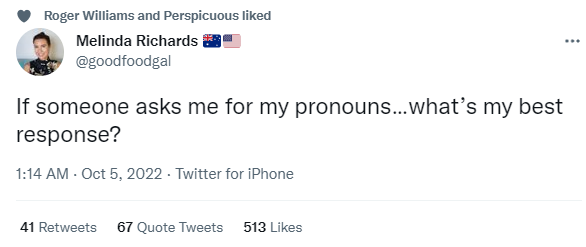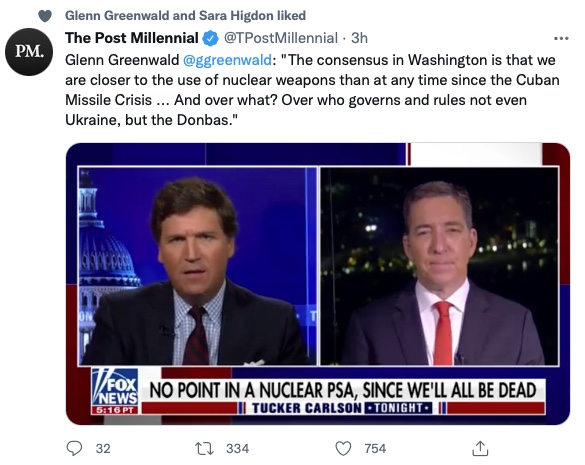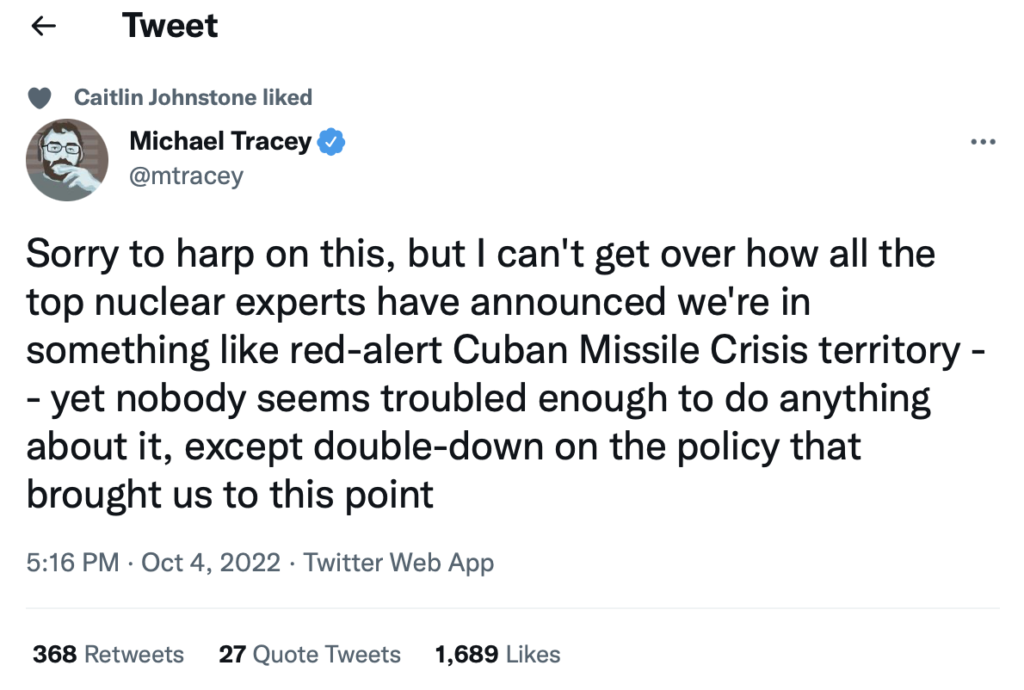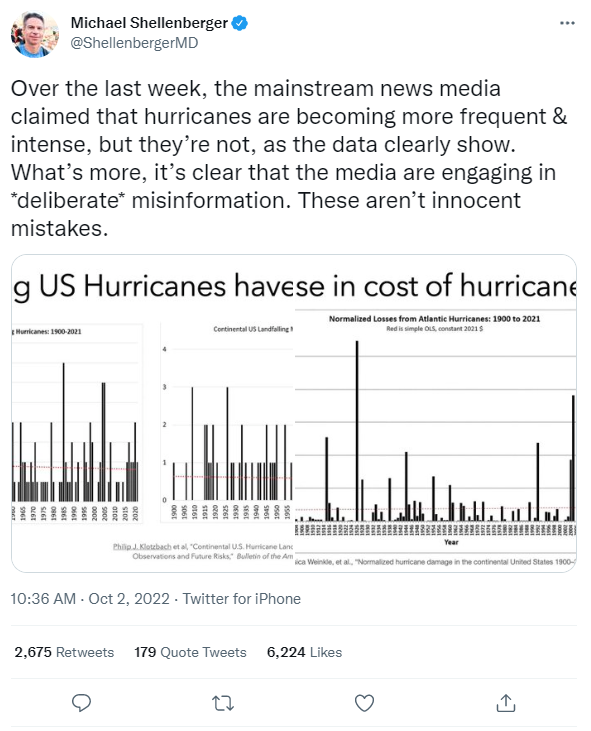When Someone Asks for Your Pronouns
On Twitter, Melinda Richards asked: “If someone asks me for my pronouns…what’s my best response?”
Here are some of the suggestions she received:
- "Go with your gut." (Colin Wright)
- “I’m not normalizing this ideology by giving you my pronouns” (Eyes Wide Open)
- 'Why do you want to know?' (Geoffrey Miller)
- “Your Majesty, of course.” (Pierre Chenekoala)
- “The normal ones.” (Gyno Chad)
- “I no speaka de wokie.” (Lou Rider)
- “I identify as a donkey. My pronouns are hee/haw.” (Ryan Rally)
- “Traditional” (MostlyInitTogether)
- “I don’t recognize your religion.” (Lorraine Braddock)
- "You're a bright kid. You work it out." (Dick Nalton)
- “Just say ‘Treat me as a normal person and use the ones you have used 2 years ago.’” (Oliver Reed)
“Point is, 'pronouns' are not used to "address" people - only when talking *about* someone. e.g. "he/she did such&such" When addressing someone, you use their name or title (Doctor, Professor etc), or sir/madam/miss if you don't know their name. So, their 'pronouns' are superfluous.” (Boomerang1)
See also, Colin Wright's article on this topic at the Wall Street Journal.





